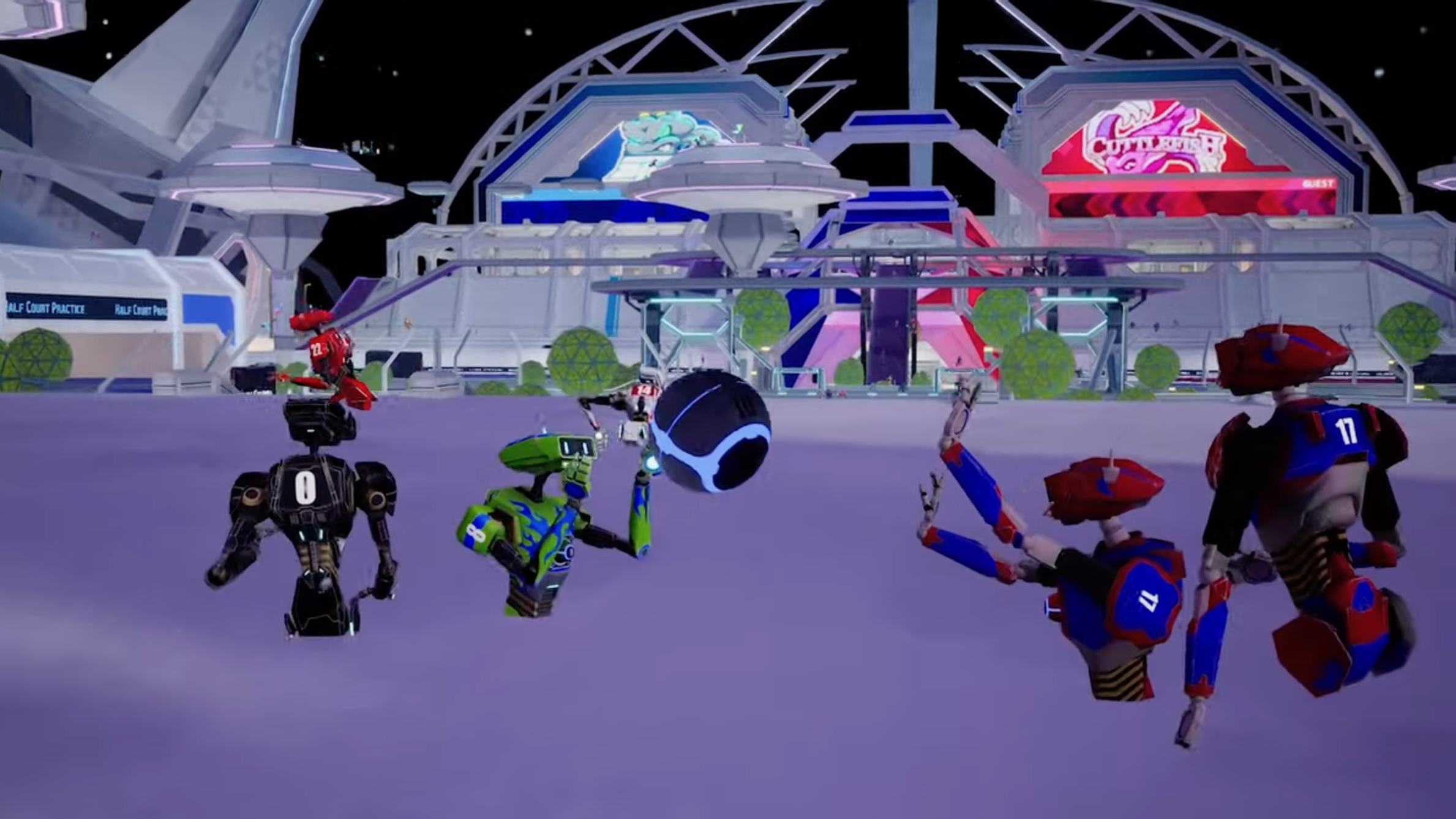
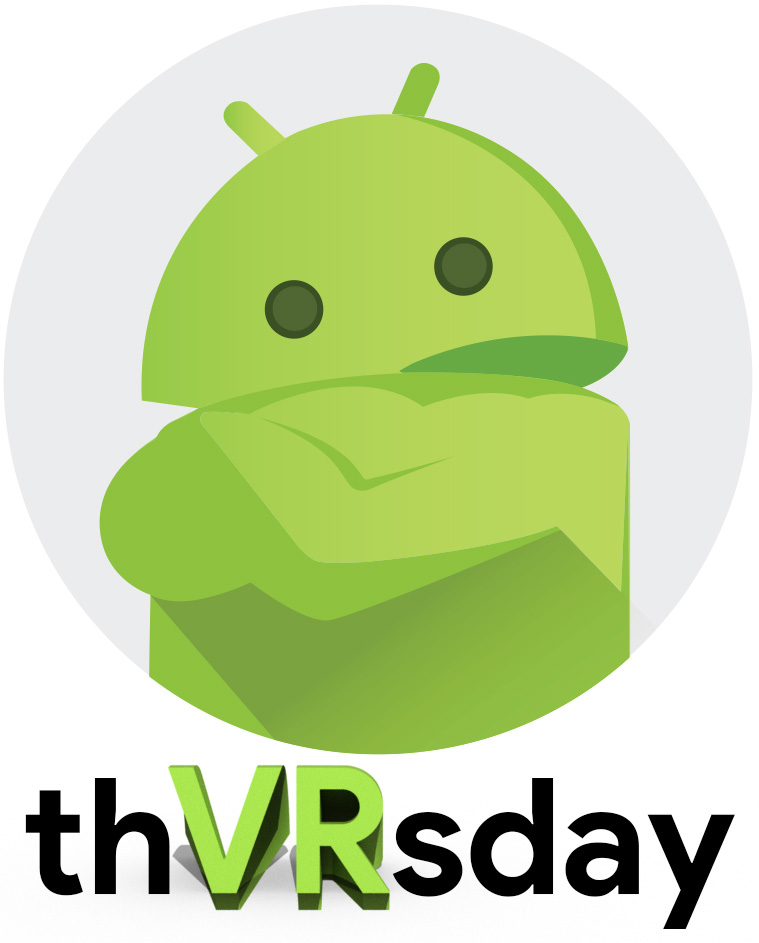
In his weekly column, Android Central Senior Content Producer Nick Sutrich delves into all things VR, from new hardware to new games, upcoming technologies, and so much more.
When you step into Gorilla Tag, you'll quickly notice a distinct lack of menus. Pressing the menu button doesn't do anything at all — something that its creator says often results in false "bug reports" from some users. Tapping the face buttons doesn't perform an action. There's no inventory to manage. Even moving around the world doesn't require you to push a joystick. Instead, all you need is your arms, where you'll push off the world as if walking with them.
It's a concept many in the VR community are deeply familiar and comfortable with, and this simplicity is one of the many reasons Gorilla Tag is the most popular game on the Meta Quest platform. While it won't likely topple Beat Saber in pure revenue generated for some time, the game is among the largest-grossing VR games of all time, recently topping $100 million in revenue. While it was started by one man, it's now run by a team of around a dozen people, and that team is hard at work on the next generation of social apps: Orion Drift.
I had the chance to sit down with the developers at Another Axiom, the company that makes Gorilla Tag, including Kerestell, the Gorilla Tag creator who is also known as Lemming, at Meta Connect 2024. We had a great chat about accessibility and locomotion in VR, reminisced about the days when Echo VR was around, and of course, discussed what the future of social virtual interaction looks like in Orion Drift.
Orion Drift: A different kind of game
It's not just the controls that make Gorilla Tag different from other games. It's also the gameplay structure. While there are plenty of gameplay modes and objectives to complete, Gorilla Tag is largely a social experience at heart. When you start the game, you're immediately put into a world with other players and can navigate from there. Since there are no menus to use, you'll need to bumble around and find computer terminals that'll take you to other places.
Of course, if you don't know where to go, all you'd need to do is ask another player. Kerestell told me this was designed after his favorite VR game, Echo VR, which had a similar sort of lobby structure that would encourage social interaction and put you in a play space rather than asking you to go through menus the moment you entered the game. It's a more natural form of social play that makes you feel like you're visiting a location rather than "playing a game," as Kerestell told me.
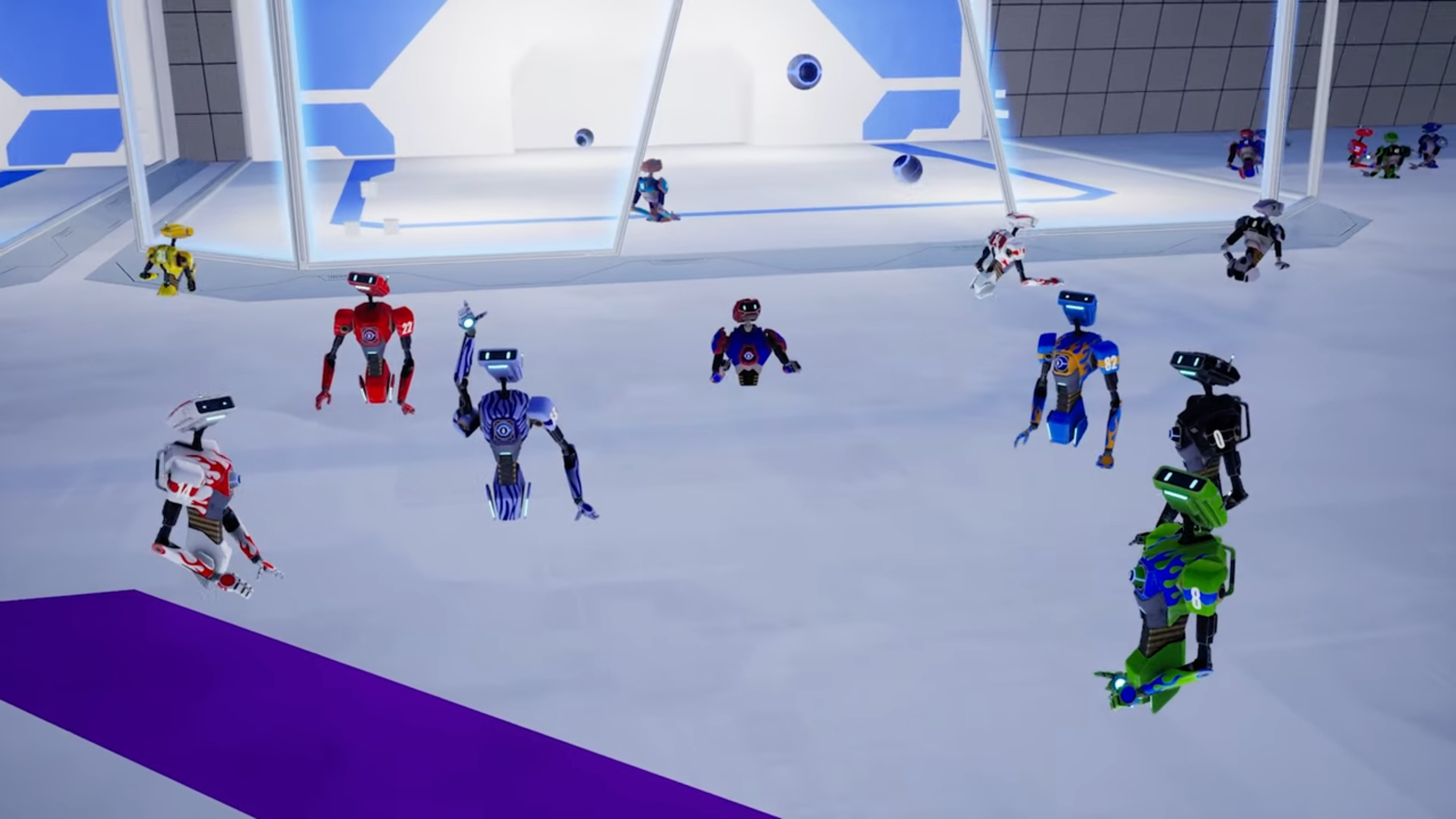
I remember being jarred by this design the first time I entered Gorilla Tag and had no idea what to do, but other players quickly helped guide me to the next points to try. Orion Drift, Another Axiom's upcoming game, ramps this up by creating giant "lobbies" with up to 200 players in each one. Kerestell told me this design encourages community and connection as he reminisced about the days of Counter-Strike community servers where he would spend hours getting to know other players and making friends online in what was a new way at the time.
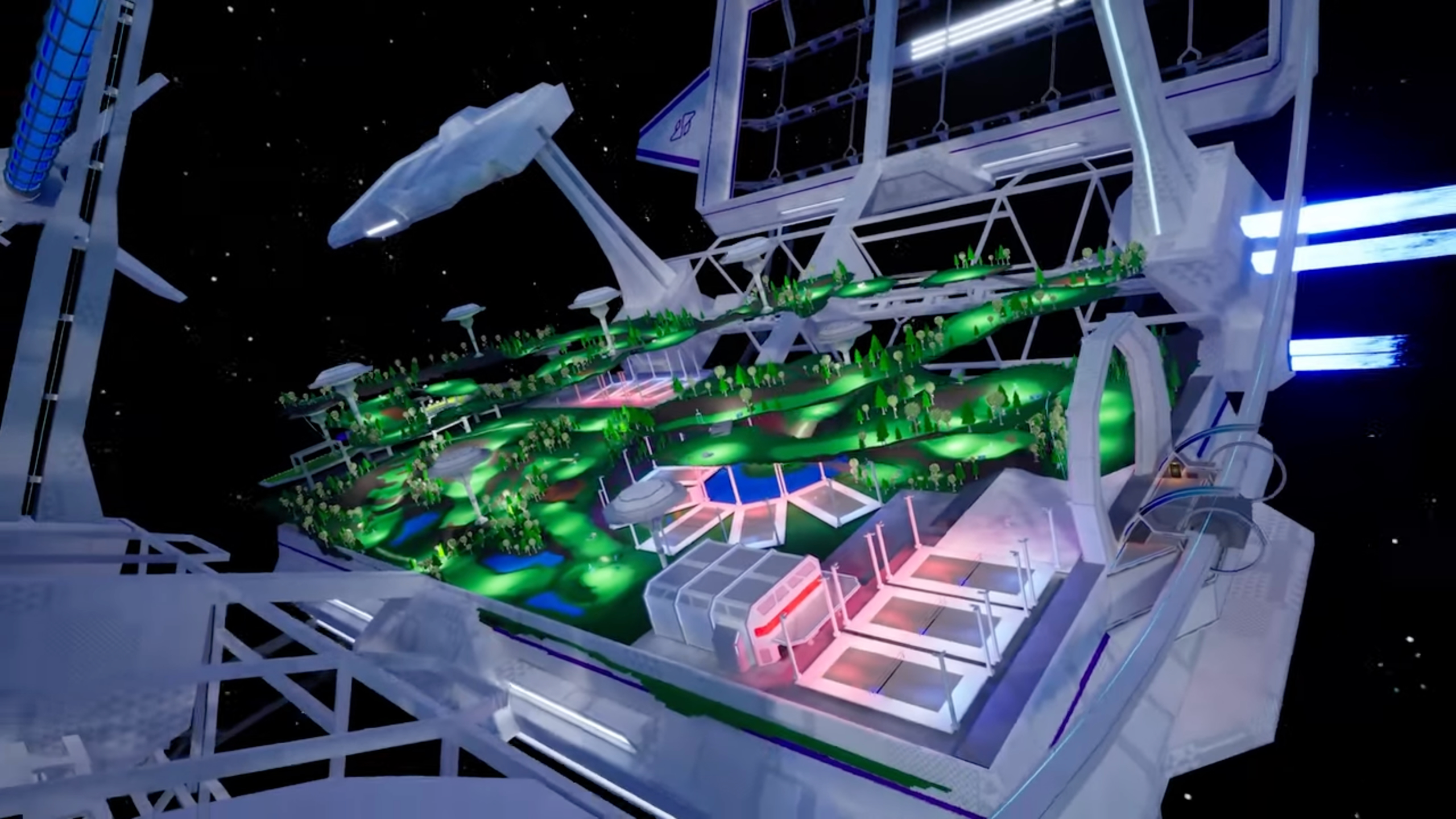
But unlike Gorilla Tag, Orion Drift doesn't take place on a planet. Rather, it's a zero gravity environment in space that's a lot more similar to Echo VR's trademark gameplay. When I sheepishly asked about the possibility of the team essentially remaking Echo VR, he coyly told me that there are certainly some similarities but the team doesn't want to try to make a better Echo since there's really no way to improve upon what made Echo uniquely amazing.
Instead, Orion Drift's lobby or hub world will be filled with games and mini-games, all designed around the idea of keeping a community close together and playing together often. It's a far cry from the 5v5 shooters that have become so commonplace in the world of VR, all of which tend to rely too much on matchmaking algorithms and not enough on normal human interactions. The idea here is that you'll first meet people and then decide what you want to play rather than picking a game mode and hoping someone shows up.
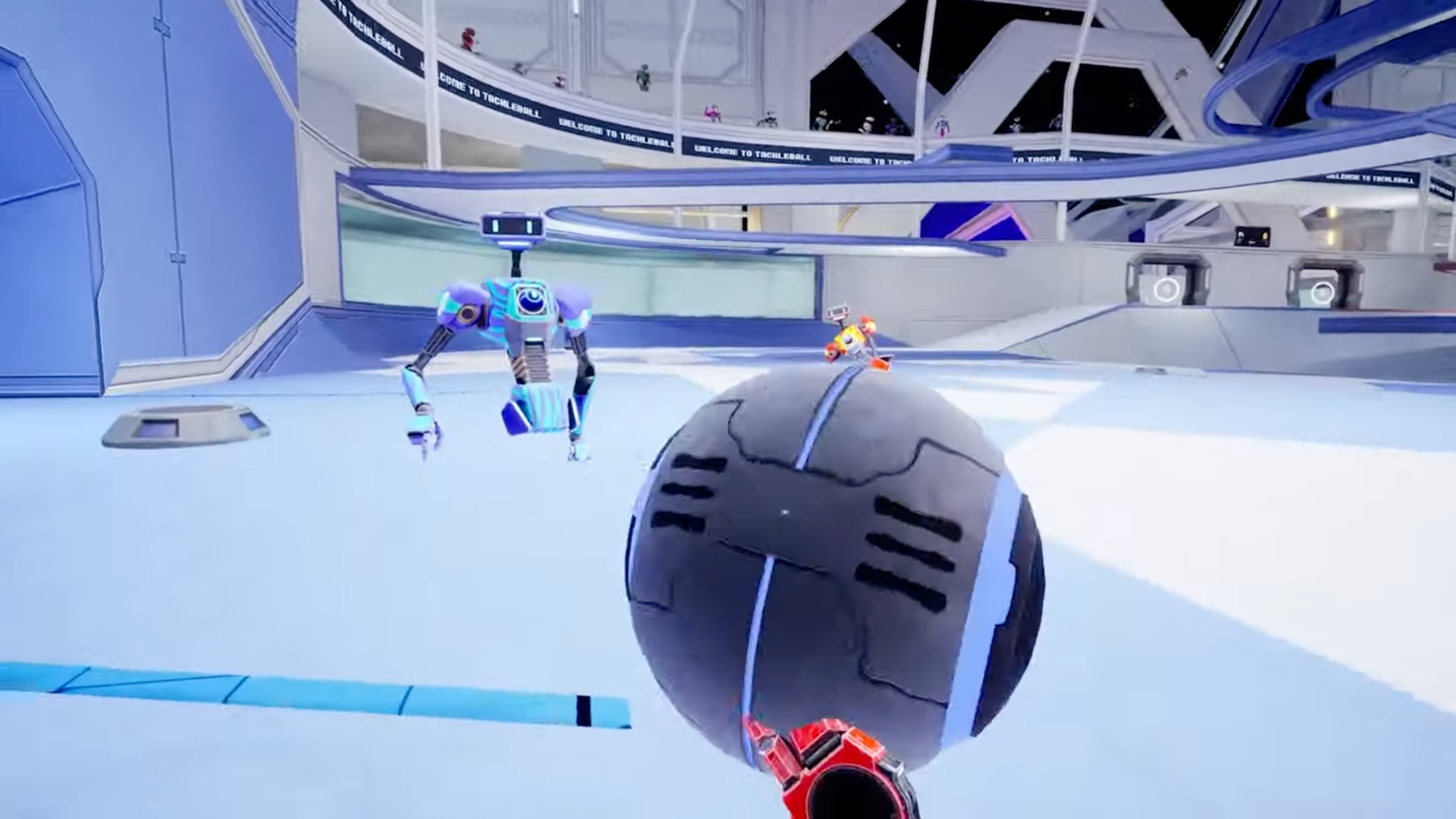
It gets me excited about the concept in a way that Gorilla Tag never did. I was an Echo VR player for years, after all, so anything that resembles the great game that was taken away from its community too early entices me.
I'm particularly excited about what sorts of games will be found inside Orion Drift. The team told me that the overall design of Orion Drift is to rapidly iterate new games and ideas the community puts forward, helping to focus on what its gaming population wants rather than hoping the games find a population. It's a formula that most studios couldn't pull off, but thanks to the immense success of Gorilla Tag and the pedigree that now comes with the Another Axiom name, it's one I think they could legitimately pull off.
Orion Drift currently has a Discord, where you can request to join the Closed Early Access beta and test it out for yourself.







